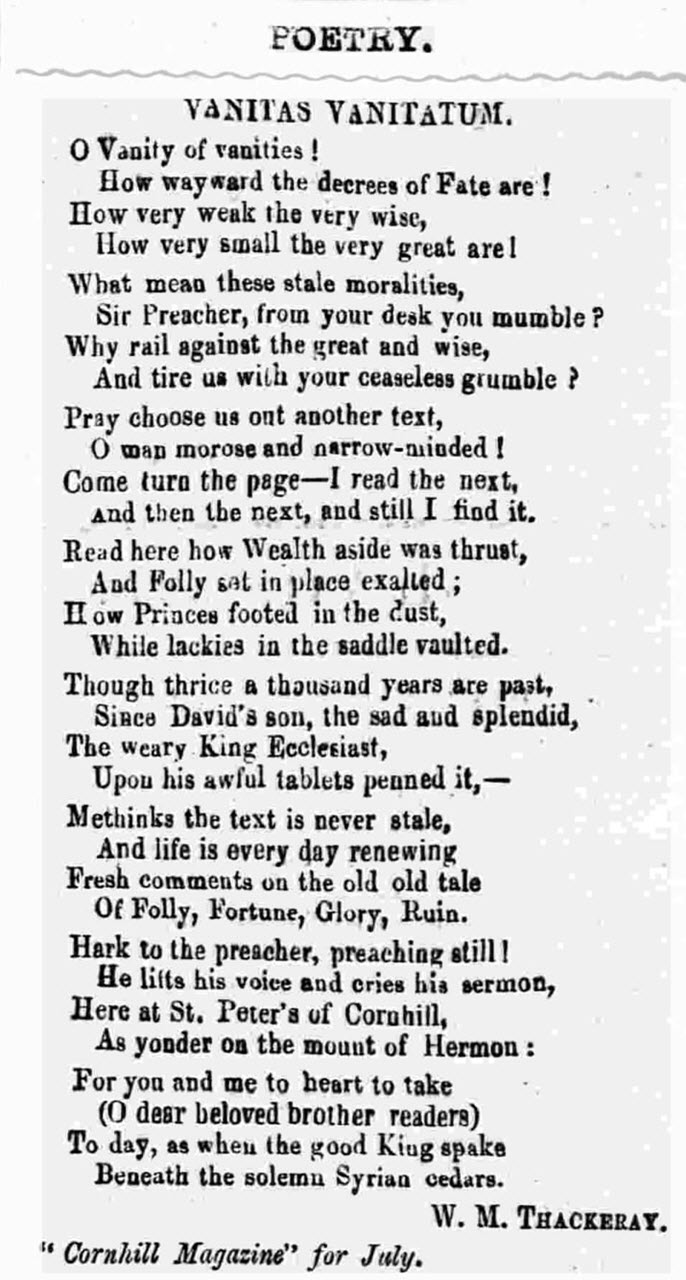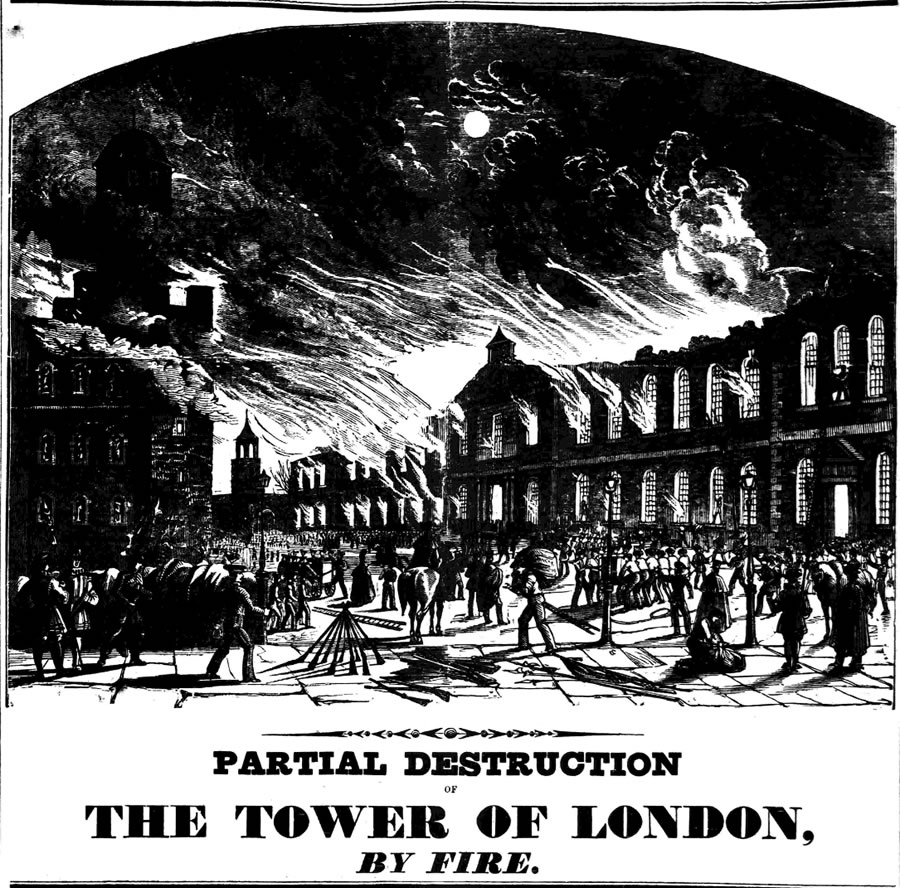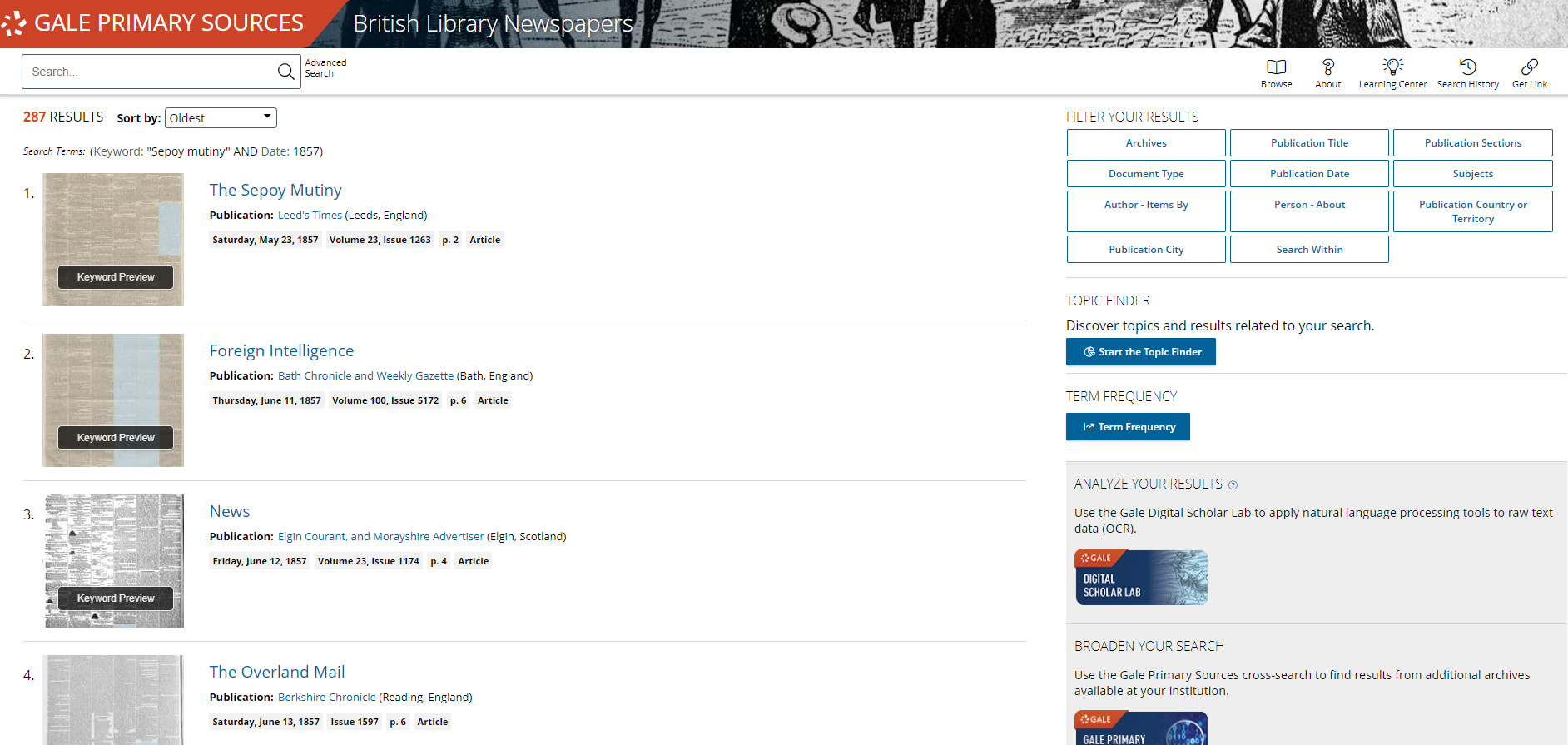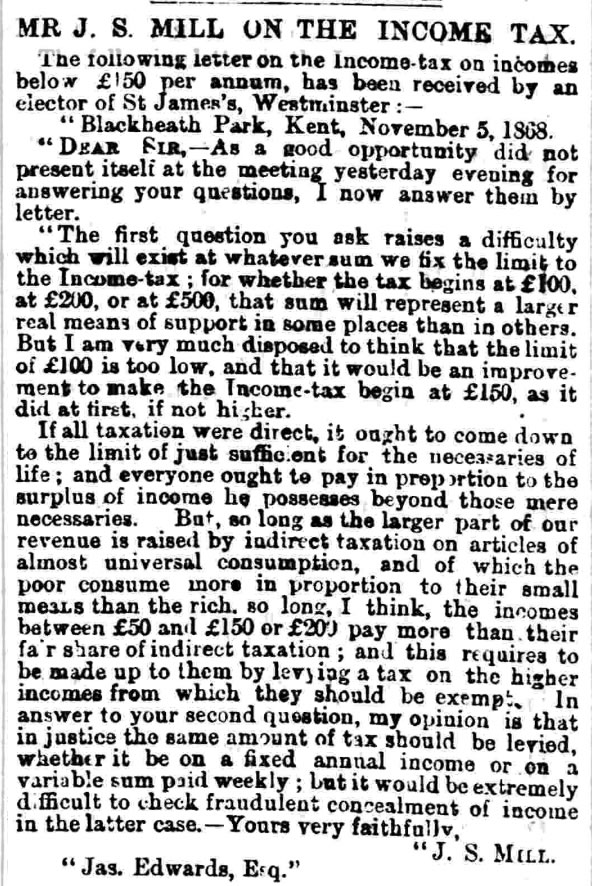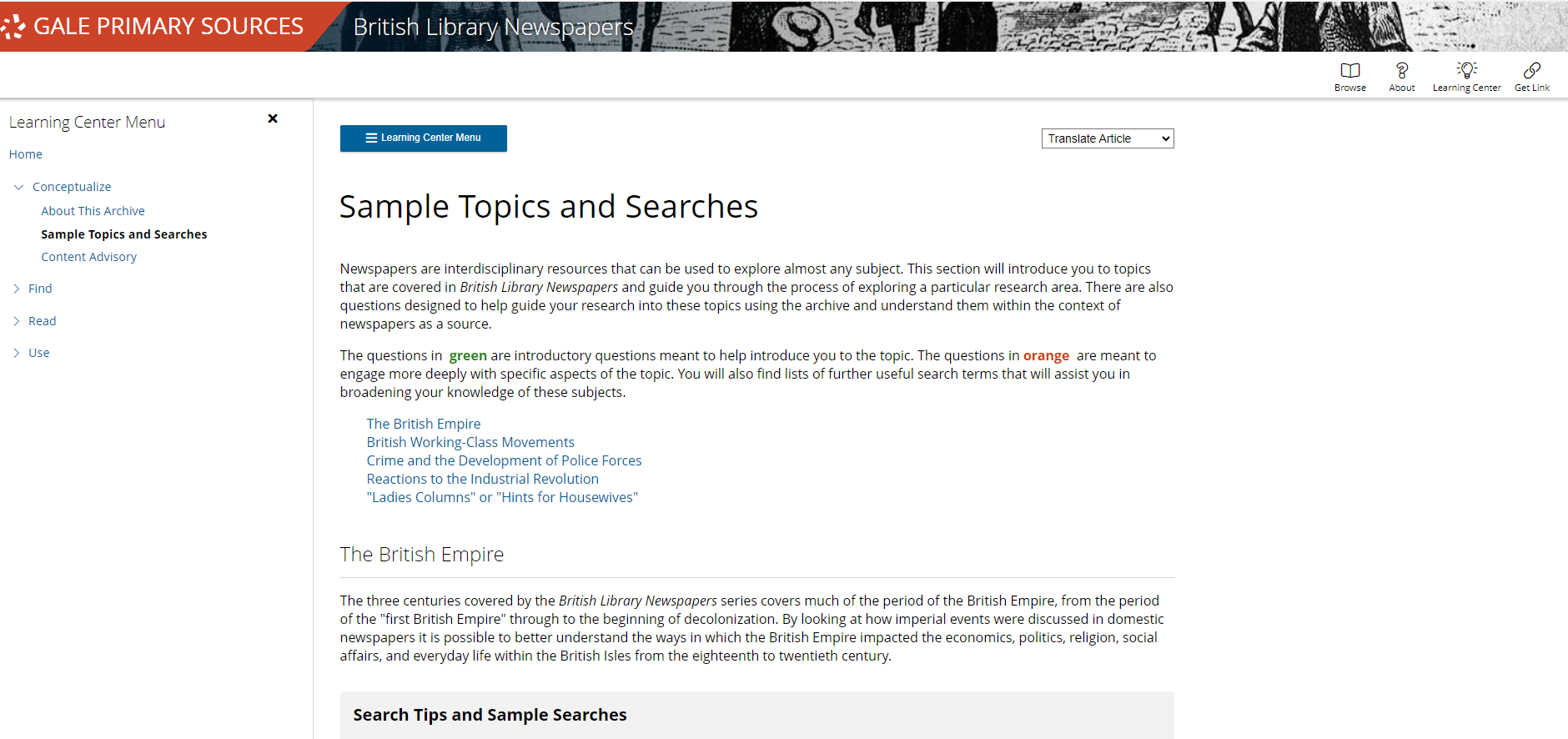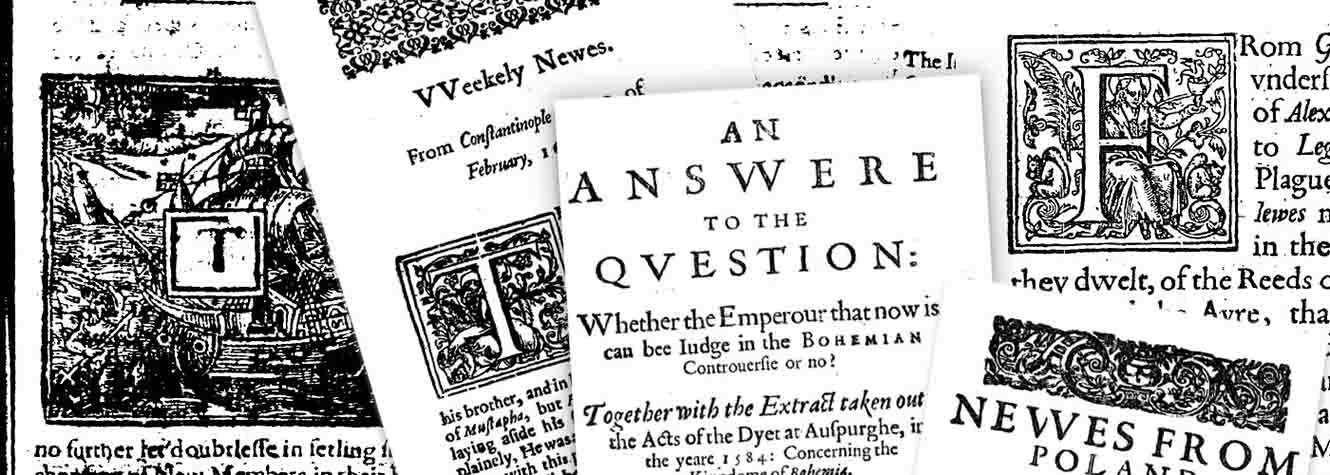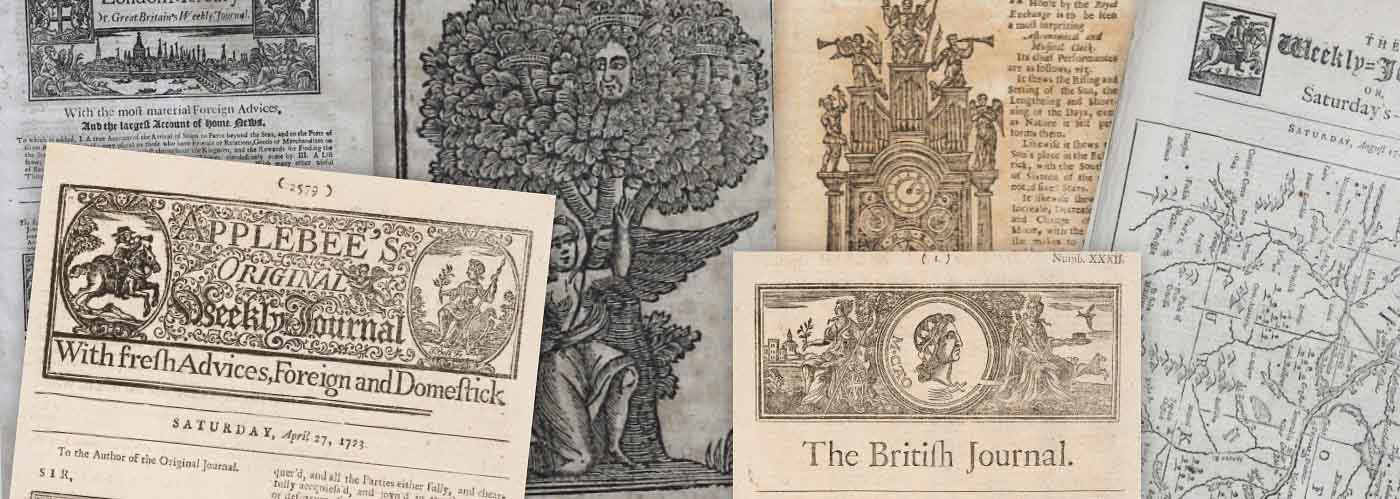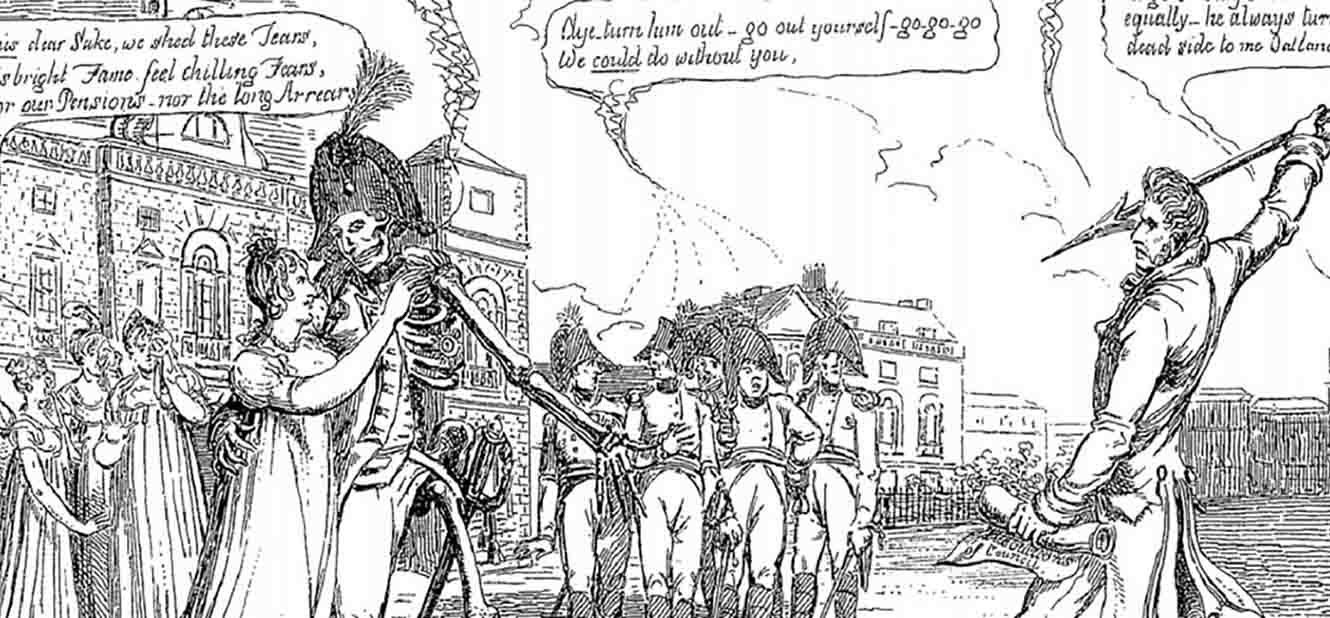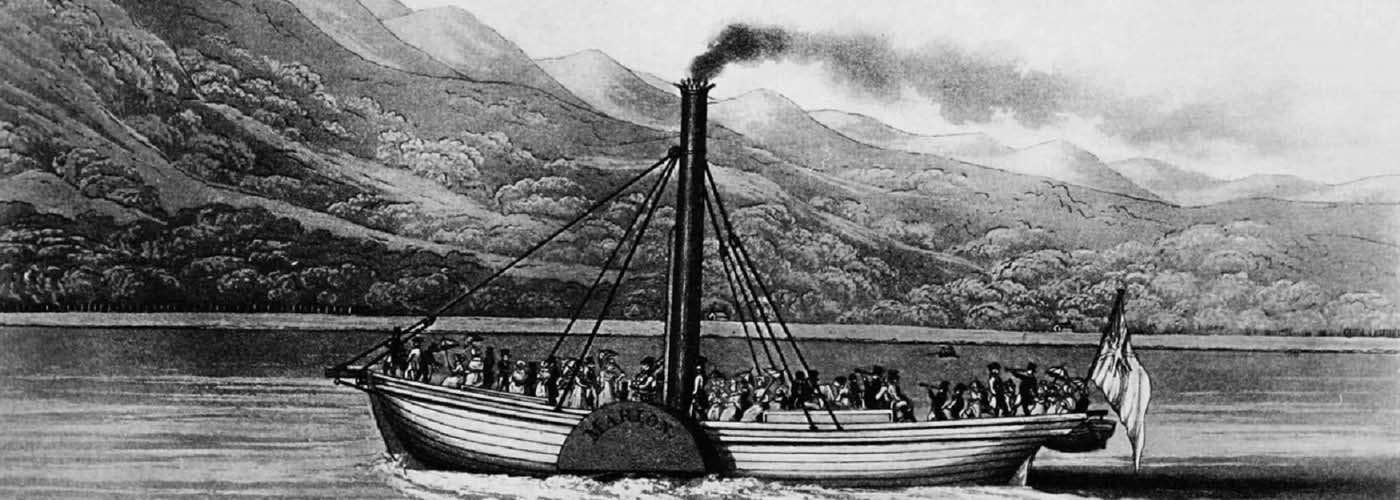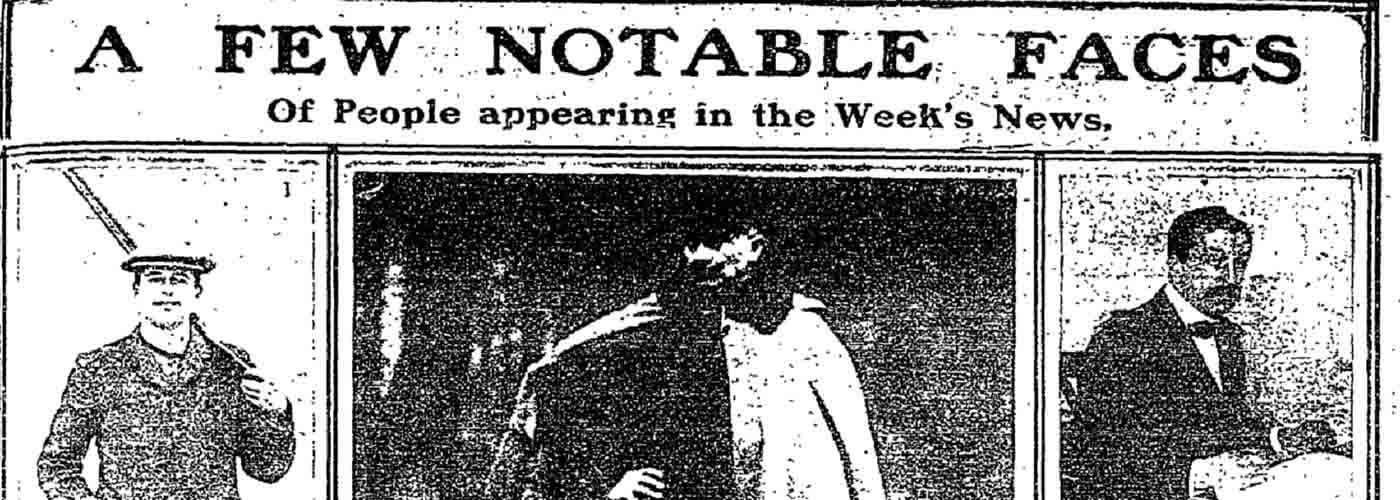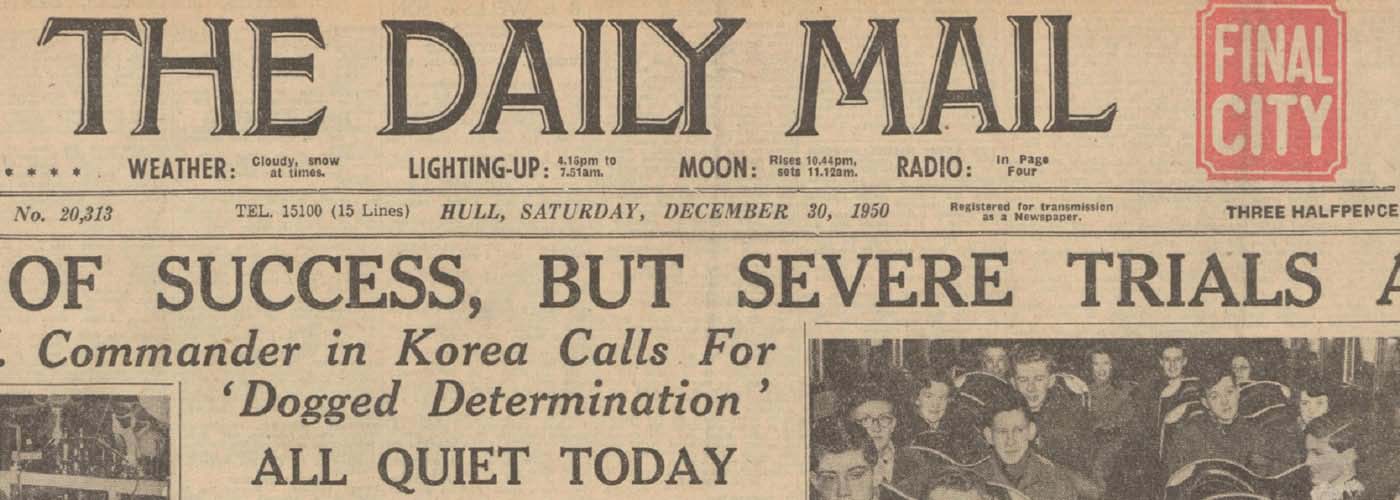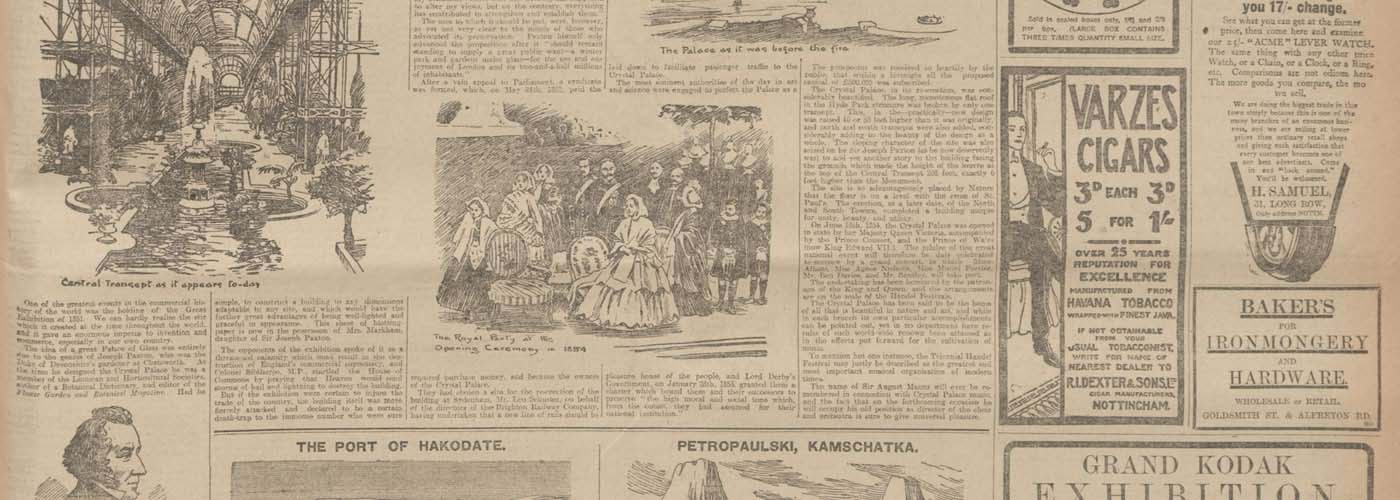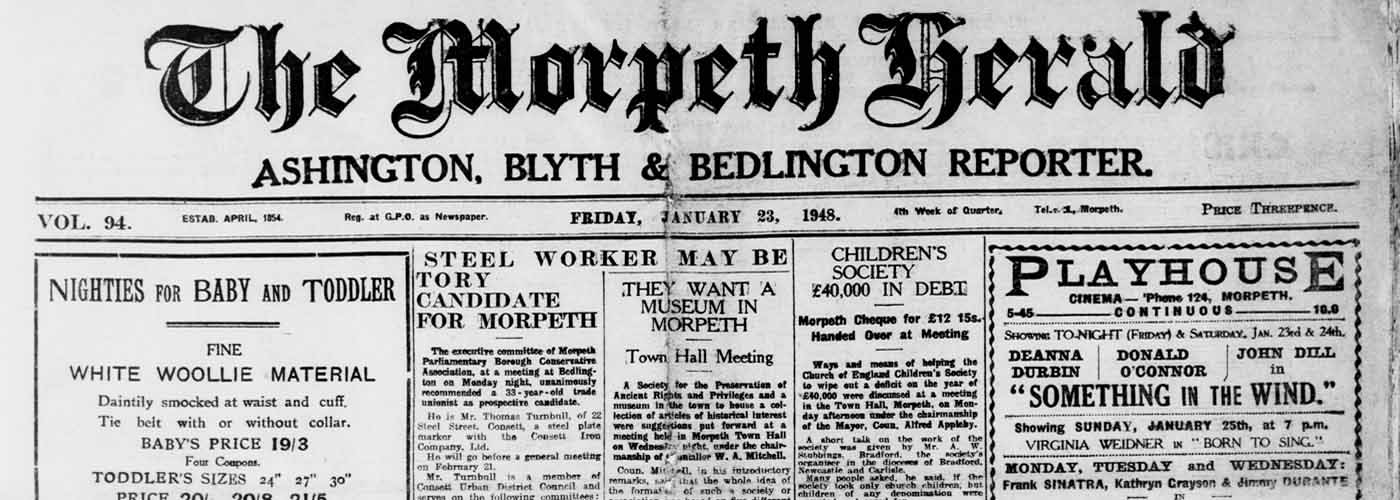Enhance your understanding of regional life and culture in Victorian-era Britain with a trove of local newspaper coverage and first-hand accounts
British Library Newspapers, Part II: 1800-1900 is part of the British Library Newspapers series, providing researchers with the most comprehensive collection of regional and local newspapers of nineteenth-century Britain available. Part II adds 22 titles that expand the coverage into new cities and regions and offers a wider political perspective. Along with the other parts of this series, this full-text, fully searchable digital archive includes papers originating in England, Scotland, and Ireland that illuminate a first-hand account of British life in the nineteenth century.
Researchers can find the newspapers of a number of significant towns and regions included in this collection: Nottingham, Bradford, Leicester, Sheffield, and York, as well as North Wales. The addition of two major London newspapers, the Standard and the Morning Post, helps capture conservative opinion in the nineteenth century, balancing the progressive, more liberal views of the newspapers that appear in Part I.
Titles included in Part II: 1800-1900:
- Berrow's Worcester Journal (Worcester)
- The Blackburn Standard (Blackburn)
- The Bradford Observer (Bradford)
- Bury and Norwich Post (Bury Saint Edmunds)
- Cheshire Observer (Chester)
- Daily Gazette for Middlesbrough (Middlesbrough)
- Dundee Courier (Dundee)
- The Essex Standard (Colchester)
- The Huddersfield Chronicle (West Yorkshire)
- Isle of Man Times (Douglas)
- Isle of Wight Observer (Ryde)
- Lancaster Gazette (Lancaster)
- Leicester Chronicle (Leicester)
- The Morning Post (London)
- Nottinghamshire Guardian (Nottingham)
- Royal Cornwall Gazette (Truro)
- Sheffield Independent (Sheffield)
- Southampton Herald (Southampton)
- The Standard (London)
- The Star (Saint Peter Port)
- The Wrexham Weekly Advertiser (Wrexham)
- The York Herald (York)
FEATURED REVIEW
“The 19th-century British Library Newspapers add to a rich collection of other historical material that is already available from Cengage. . . . Gale's other U.K. historical material includes the Economist archive from 1843 to 2000, the Burney Collection of 17th- and 18th-century newspapers, and 19th-century U.K. periodicals. . . .Together, these resources will give historians and other researchers unparalleled access to historical material.”
- Information Today
Look Inside
Additional Details
subjects covered
- British Studies
- European Studies
- Western European Studies
- Gender & Women's Studies
- Humanities & Social Sciences
- Sociology
- Religion & Philosophy
- Science & Technology
Support Materials
View and download these PDFs
Platform Features & Tools
Term Frequency
Researchers can see the frequency of search terms within sets of content to begin identifying central themes and assessing how individuals, places, events, and ideas interact and develop over time.
Topic Finder
By grouping commonly occurring themes, this tool reveals hidden connections within search terms—helping to shape research by integrating diverse content with relevant information.
Cross-Search Capability
Search across the materials of complementary primary source products, including books, in one united, intuitive environment, enabling innovative new research connections.
Reviews & Testimonials
“Overall, this is a wonderfully rich resource which has all the benefits of a well-funded, exhaustively researched project designed with the views of potential users well to the fore. The process of academic consultation has produced a selection of material which is certainly of enormous value for those wishing to better understand the language, layout and political contexts of the 19th-century newspaper across the British Isles.”
“I have always been suspicious of claims that electronic resources can transform your research life, but an exception has to be made for the online archive of British Library nineteenth-century newspapers. For the first time, it is possible to search a wide range of titles in the provincial and metropolitan press quickly and easily: work that would have taken painful weeks on a microfilm reader can now be done in an afternoon. Everything from biographical details to editorials about major events can be recovered, making this a tool useful for anyone interested in the national past.”
“The most significant impact has been upon my students. I used to shy away from encouraging essay and dissertation topics that involved extensive use of the press, knowing from experience that results were too hard-won and unpredictable for all but the most determined. But the situation has now changed. I can see real opportunities for a revival in reception studies and work on public reputations. One undergraduate last term, for example, tracked the early weeks of the newspaper reception of Darwin's Origin of Species, the first time this had been attempted for half a century. I used to spend much of my time showing students how to find things; now there is more time for them to think.”
“19th Century BL Newspapers Online gives us an invaluable new perspective on the way Victorian Britain came to understand itself as a community of citizens, consumers and commentators. It is hard to imagine any researcher with nineteenth-century interests to whom it does not offer important insights on their subject: and it is dangerously addictive!”
“We have found the 19th Century British Library Newspapers an excellent resource that is heavily used by both public and staff. It is excellent news that we now have access to a significant number of additional titles and I’m sure that our users will be very pleased.”
“This is an electronic resource worth investing in, and will be indispensable in research libraries' periodicals collections. Summing Up: Highly recommended. All levels/libraries.”


